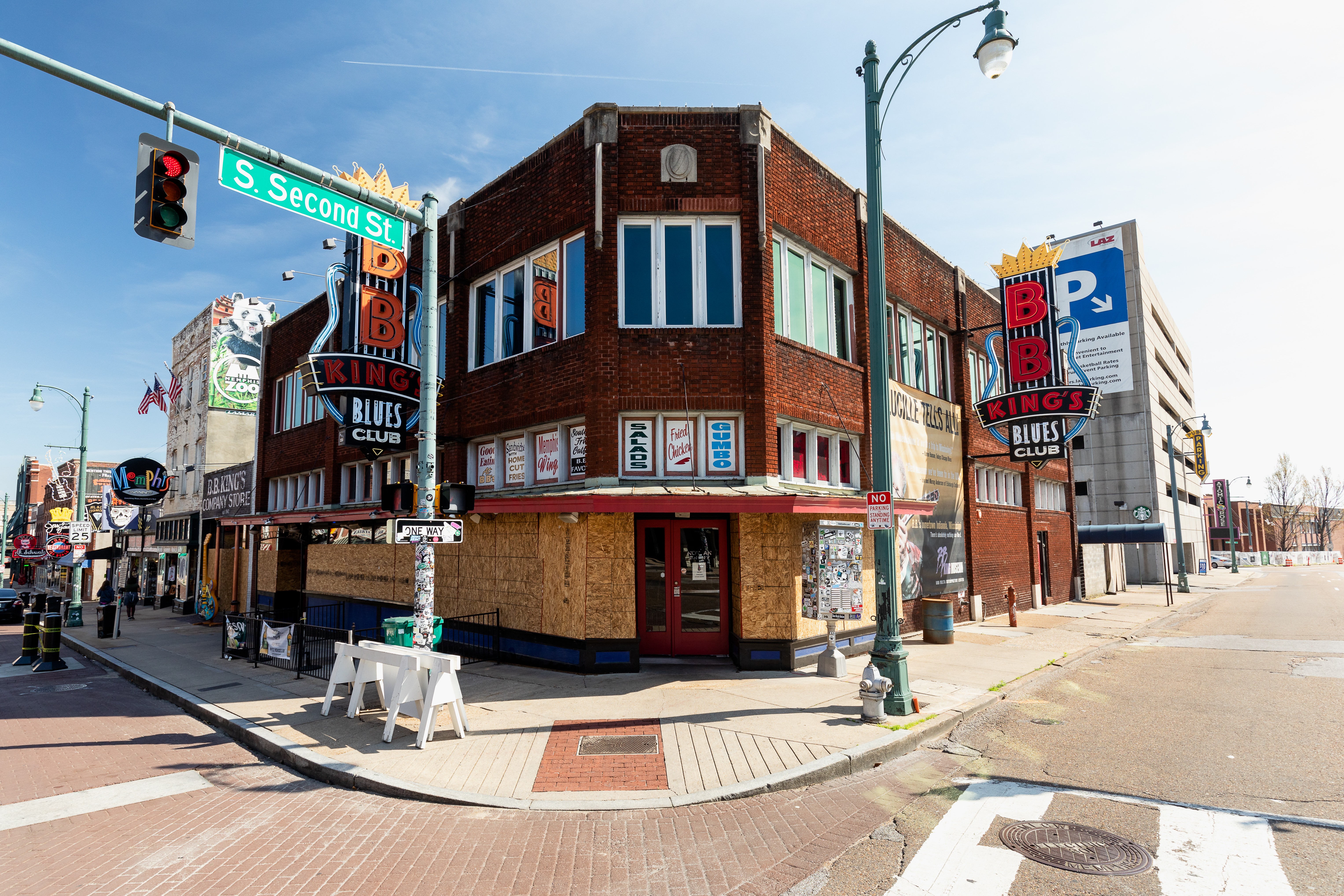 Connor Ryan
Connor Ryan
B. B. King’s Blues Club
A photograph shows B. B. King’s Blues Club with boarded-up windows.
Another photo is of the usually noisy, crowded patio at Silky O’Sullivans now empty and still.
They’re down at the end of Lonely Street.
Beale Street.
Connor Ryan, 24, a professional photographer, has been documenting Beale Street since the COVID-19 bar and restaurant closings.
“I live Downtown at the Chisca,” Ryan says. “And right after they started shutting the restaurants down, I was driving home one night and I rode by Beale to see what was going on. There was nobody on the street. And they moved the road blocks that are usually there. So, a car could drive down there. But there was nobody on the street. No cars. No anything. It was the first time I’d seen Beale like that.”
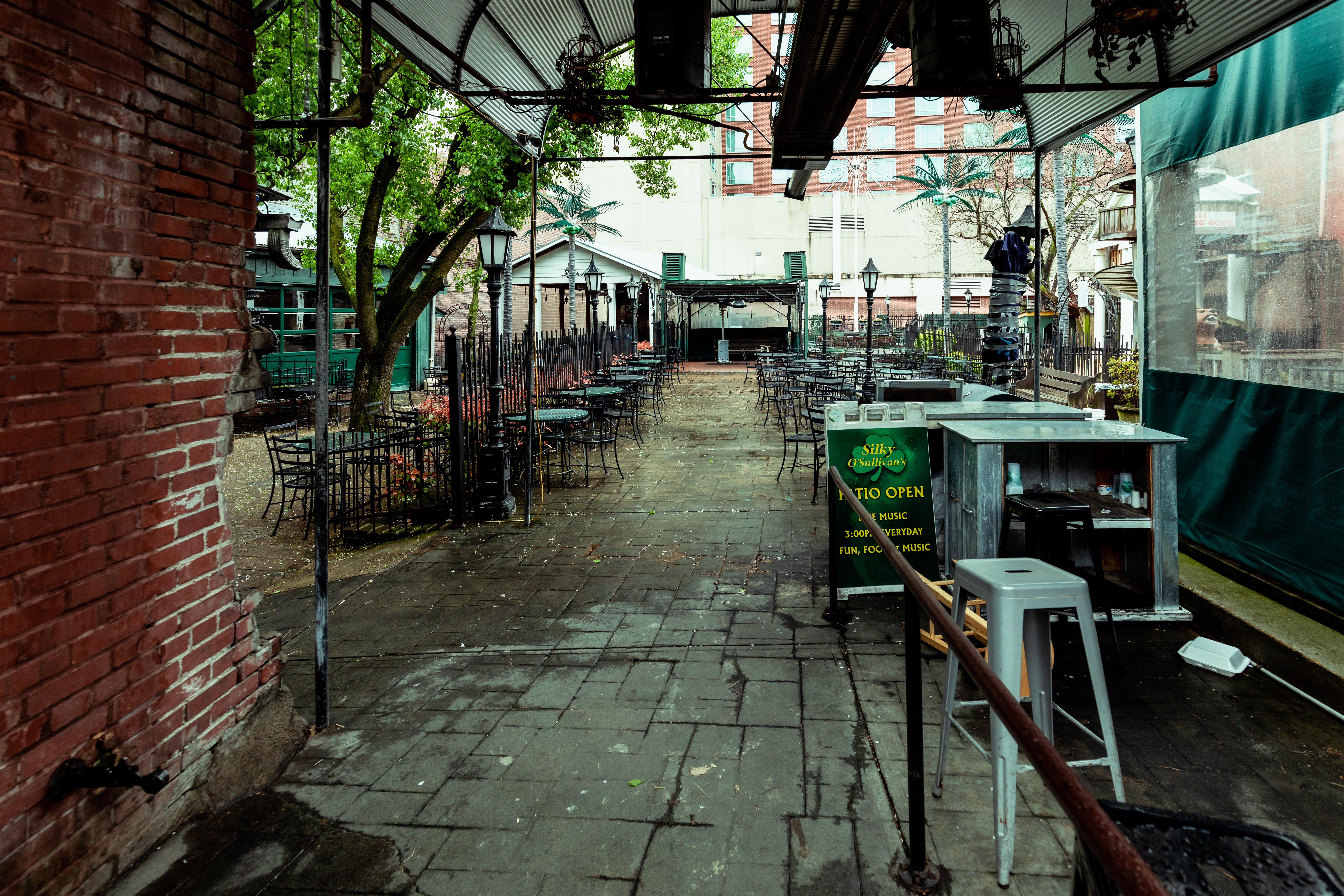 Connor Ryan
Connor Ryan
Silky O’Sullivan’s patio
He returned to Beale the next night with his Canon 5D Mark IV camera. “I was like, ‘Well, I think this might be the only time in my life Beale will be like this. At least I hope it is. I’m going to go get some pictures with everything closed down so maybe in 50 years or something, when people are talking about this whole situation again, they’ll be able to look and see how Beale Street was affected by the shutdown.’
“It’s the only place in Memphis that’s always got something going on; that’s always got people. So when you contrast a place like that that’s always busy to when it’s completely empty, it really shows the impact of COVID.”
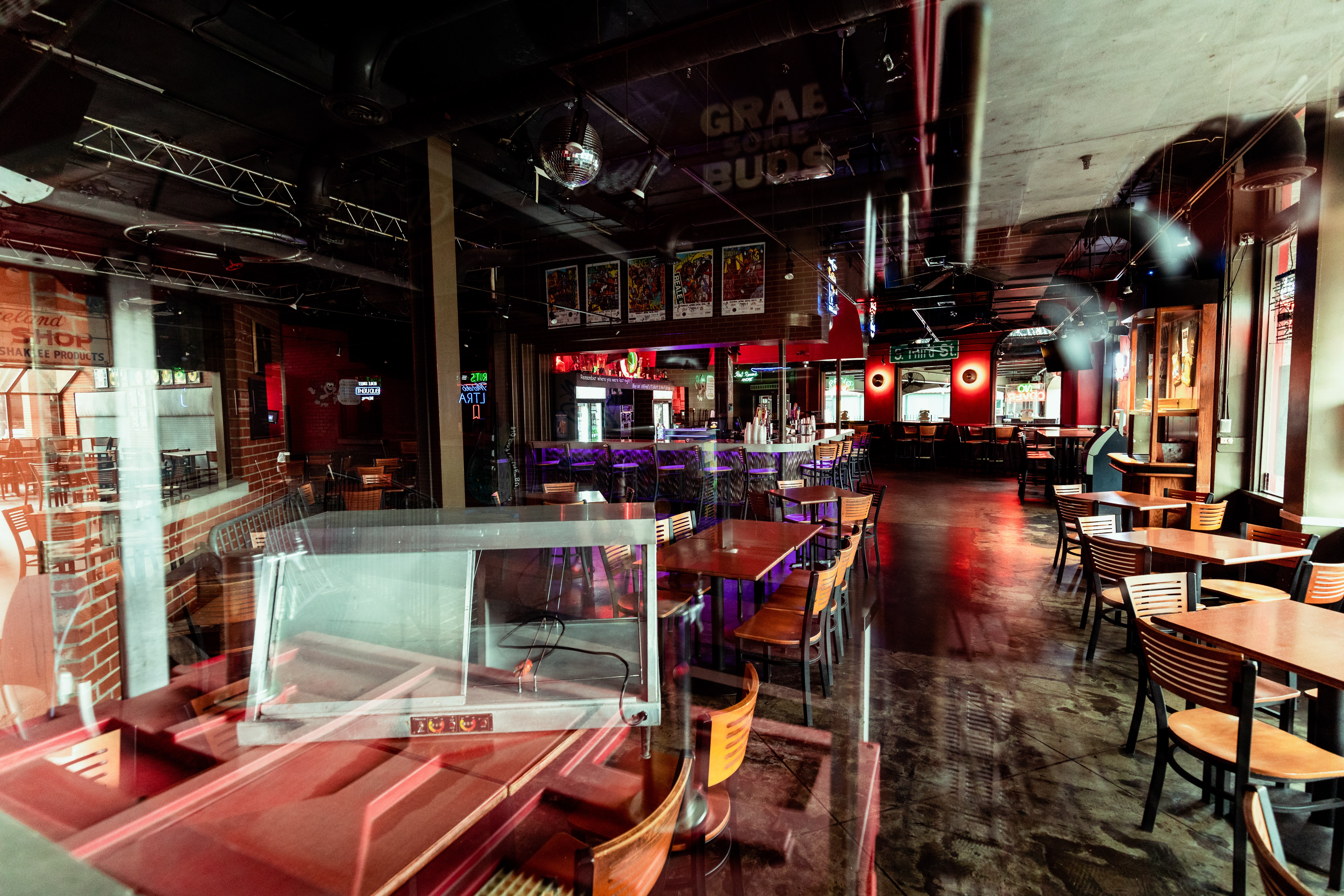 Connor Ryan
Connor Ryan
Alfred’s on Beale (shot through a window)
The first photo Ryan took was the “No Live Bands Wash Ya Hands” sign on the Blues City Band Box bar marquee. “I walked over to A. Schwab. You know, it’s open all the time no matter what. It was closed down. “
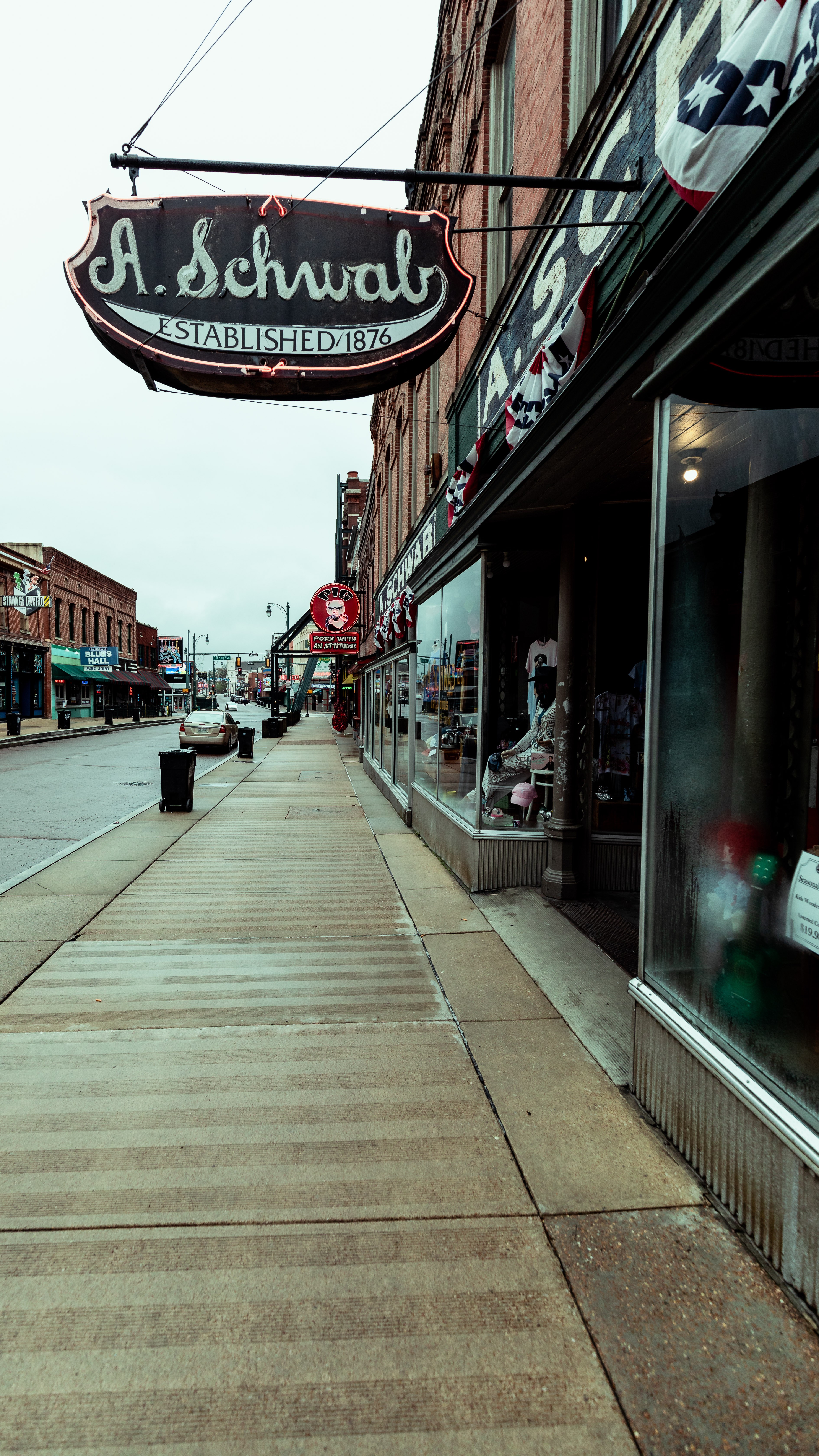 Connor Ryan
Connor Ryan
A. Schwab
Silky O’Sullivan’s was “completely dead.”
Ryan took about 100 photos. “Not normal” was the best way to describe the experience, he says. “It was like things aren’t right right now. I really saw how it was affecting our normal lives. It was like crazy how the world can change so quickly because of a disease we can’t even see with our own eyes. And, also, how it’s attacking people’s jobs and medical care and people are dying from it.”
When he was in high school at St. Benedict at Auburndale, Ryan played guitar. He wanted to join a band, but that never happened. He began shooting videos after he graduated with a degree in finance from University of Memphis. He made a few “daily blogs” about what he was doing during the day. “One of the videos was just me skateboarding on the Greenline. And I tried to make it look cinematic and all that.”
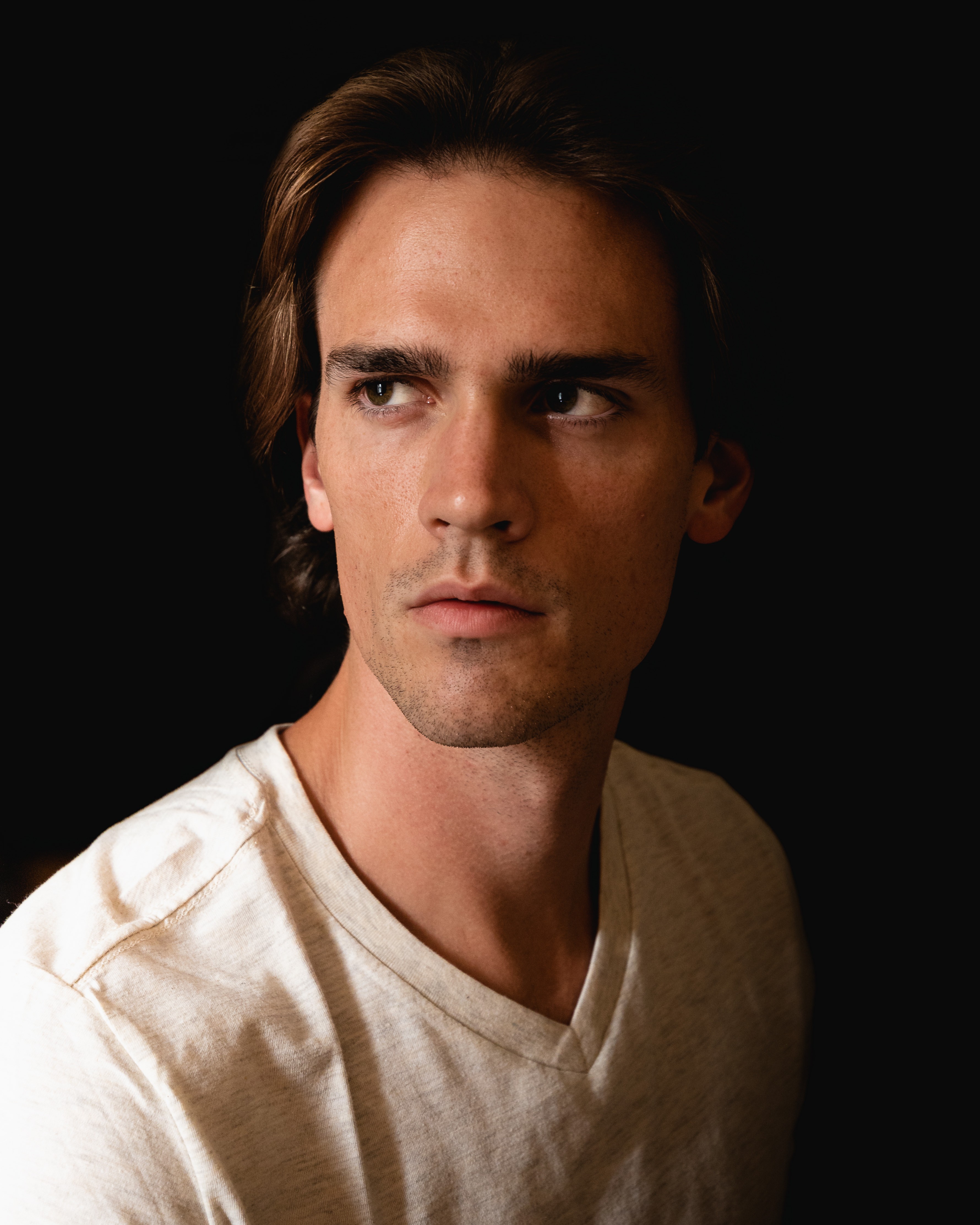 Connor Ryan
Connor Ryan
Connor Ryan
He also made travel videos, including one about a trip to New Orleans, and tutorial videos about photography. Video led to still photography. “I started taking pictures of my cat, Milo. Him and then my car. I had a 1995 Honda Accord, so it wasn’t the greatest car ever. I took pictures of my girlfriend at the time. Things I was basically seeing in my everyday life.
“And then about six months into doing that I started going to Downtown Memphis more and taking pictures down there. People were like, ‘Oh, I like that picture …’ I spread my reach with Memphis pictures. People can share those. And everyone loves pictures of the bridge. So, it’s easy to get attention with them.”
A credit analyst with First Horizon bank, Ryan shoots photos on “nights, weekends, lunchtime.”
He recently began doing commercial real estate shoots, but, he says, “Making artistic photos is probably my main focus.”
Reactions to his Beale Street photos range from “powerful” to “iconic,” Ryan says. People are “usually pretty surprised” when he shows them the photos.
Ryan isn’t going to limit his photos to Beale Street. “I might go down to Tom Lee now since they closed that off. I’ll probably go around South Main, too. Shoot what I can.”
Asked if his photographs might be exhibited one day, Ryan says, “I think a book might be
appropriate. Not a show. Just a book of Memphis during the Corona virus.”
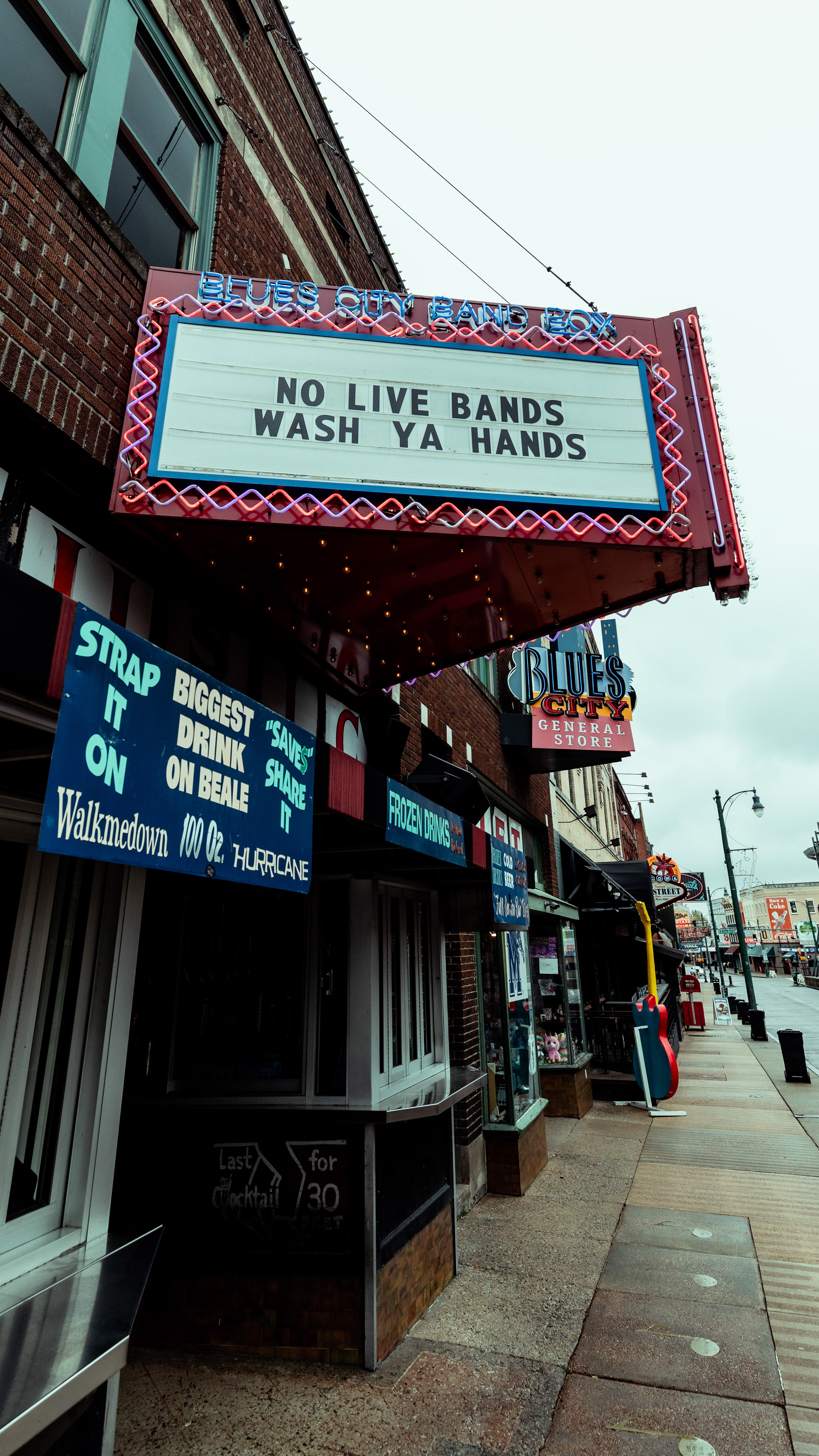 Connor Ryan
Connor Ryan
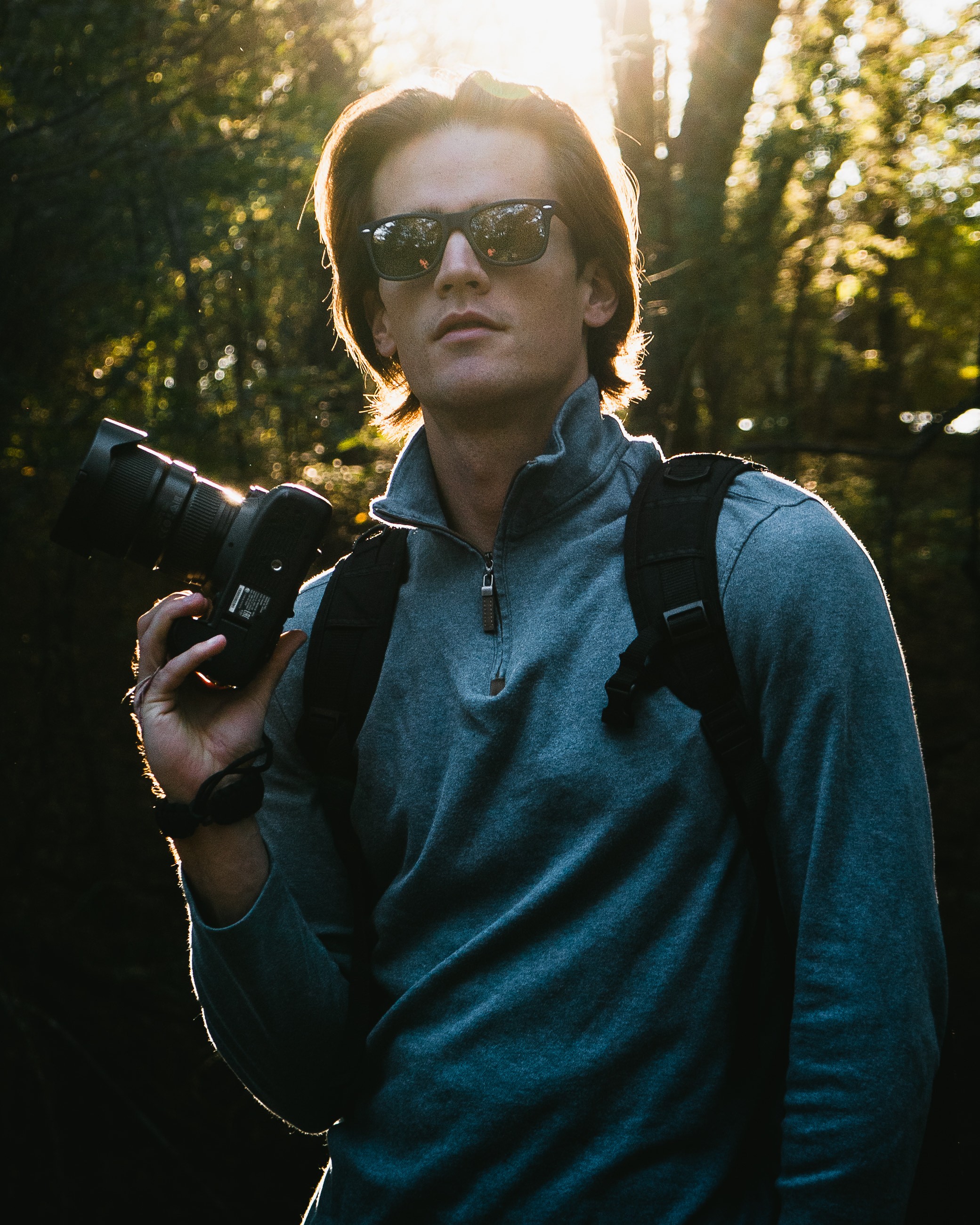 Timothy Kane
Timothy Kane
Connor Ryan